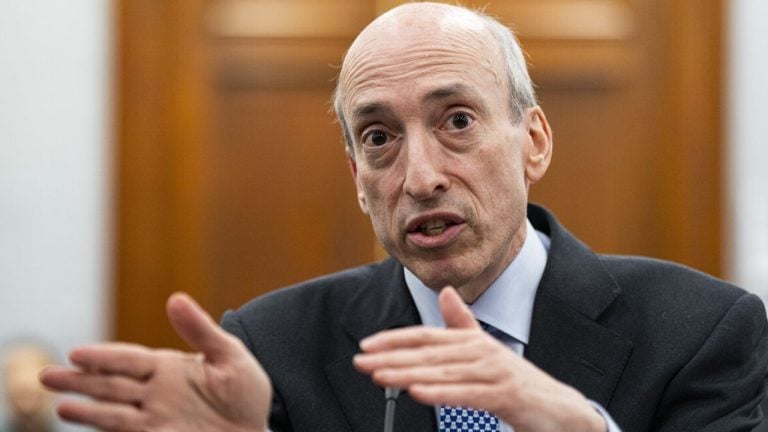
According to the recent complaint by the U.S. Securities and Exchange Commission (SEC) against Bittrex, the securities regulator insists that a few crypto asset tokens were offered and sold as investment contracts and are securities. The news follows the SEC’s designation of several crypto assets as securities, including the case against Terraform Labs, which insists that LUNA and UST were sold as unregistered securities. Additionally, a lawsuit initiated by New York attorney general Letitia James against Kucoin insists that ethereum is also an unregistered security.
Lawsuits Against Crypto Exchanges Bring Lack of Clarity Over Security vs. Commodity Status to the Forefront
This year, U.S. regulators are designating a number of crypto assets as unregistered securities, and the allegations are buried in lawsuits against several crypto exchanges. Bittrex is the latest crypto exchange to be sued this year, following lawsuits against trading platforms such as Binance US, Kucoin, and Coinex, after the SEC accused Bittrex of operating “an unregistered national securities exchange, broker, and clearing agency.” In the lawsuit against Bittrex, the SEC insists that DASH, ALGO, TKN, NGC, and OMG are unregistered securities.
As an example, on page 35, the SEC emphasized that “investors in OMG had a reasonable expectation of profits based on the efforts of others” while discussing the Omisego Project. The securities regulator claims that “materials available at the time of the [initial coin offering (ICO)] indicated that the development of the platform by the OMG Network team could lead to profits for OMG token holders.” On page 37, the SEC discusses DASH, and the regulator emphasizes that “purchasers of DASH invested in a common enterprise.”
Gary Gensler has been promoting Algorand for years
Now that the SEC ruled Algorand a security, is he going to get hit with the same $1.26 million dollar fine he gave Kim Kardashian?pic.twitter.com/ucuOOVxqPS
— LilMoonLambo (@LilMoonLambo) April 17, 2023
The SEC explains how the Dash project has a treasury, Dash Control Group, and describes the Masternodes process. Another crypto asset designated as an unregistered security is ALGO, as the regulator claims it was also sold as an investment contract. This particular crypto asset is being discussed on social media because SEC chair Gary Gensler previously called Algorand a “great technology” and “something you can create Uber on top of,” and he talked about the Italian computer scientist Silvio Micali, Algorand’s founder. However, despite the SEC chair’s past commentary, the SEC complaint insists that:
Investors in ALGO had a reasonable expectation of profits based on the efforts of others.
The regulator’s lawsuit, filed in the U.S. District Court for the Western District of Washington, provides details on when the crypto assets were made available on Bittrex’s platform. The SEC explains that DASH was made available on Bittrex in 2014 but was temporarily removed on December 29, 2020, only to be re-listed on September 1, 2021. “From the time of its offering and continuing through the relevant period, DASH was offered and sold as an investment contract and, therefore, a security,” the SEC complaint adds.
Regulatory Bodies at Odds Over Classification of Ethereum and Other Cryptocurrencies
The Securities and Exchange Commission has not provided an official list of crypto assets that have been deemed securities. Mentions of such designations continue to arise in court cases, such as the July 2022 insider trading case involving a Coinbase employee. The lawsuit referenced crypto assets such as dfx finance (DFX), LCX (LCX), powerledger (POWR), and six other digital currencies listed on the crypto trading platform. Luna (LUNA) and terrausd (UST) were identified as unregistered securities in the SEC case against Do Kwon. Additionally, the lawsuits against Kucoin and Coinex initiated by New York attorney general Letitia James make specific designation claims.
In the Coinex lawsuit, James and the Office of the Attorney General (OAG) assert that the trading platform failed to register as a securities and commodities broker-dealer and sold “securities and commodities.” The securities and commodities mentioned in the OAG case include AMP, LUNA, LBC, and RLY. In the case against Kucoin, James and the OAG stated that the second-largest crypto asset, ethereum (ETH), is an unregistered security.
In the lawsuit against Binance launched by the U.S. Commodity Futures Trading Commission (CFTC), the commodities regulator declares that bitcoin, ethereum, binance usd, tether, and litecoin are commodities. The discrepancies between the OAG and the CFTC lawsuits highlight the lack of regulatory clarity in the system where two regulating bodies still haven’t decided on what is a security and what a commodity is in terms of the thousands of crypto assets that exist today.
What do you think the future holds for the regulation of cryptocurrencies? Do you believe more clarity and consistency will emerge, or will the regulatory landscape remain fragmented and uncertain? Share your thoughts in the comments section below.
from Bitcoin News https://ift.tt/v2B8lXq
Comments
Post a Comment